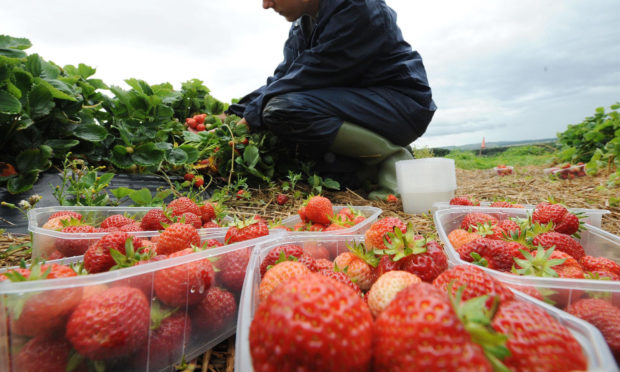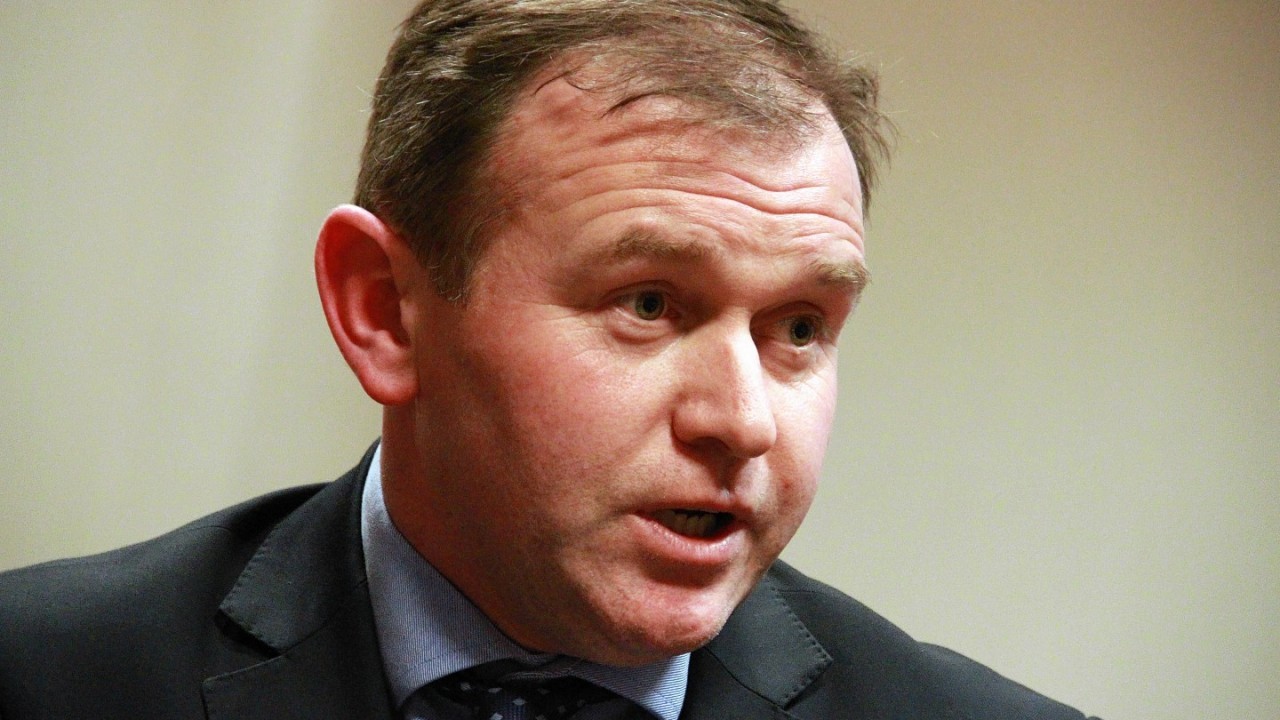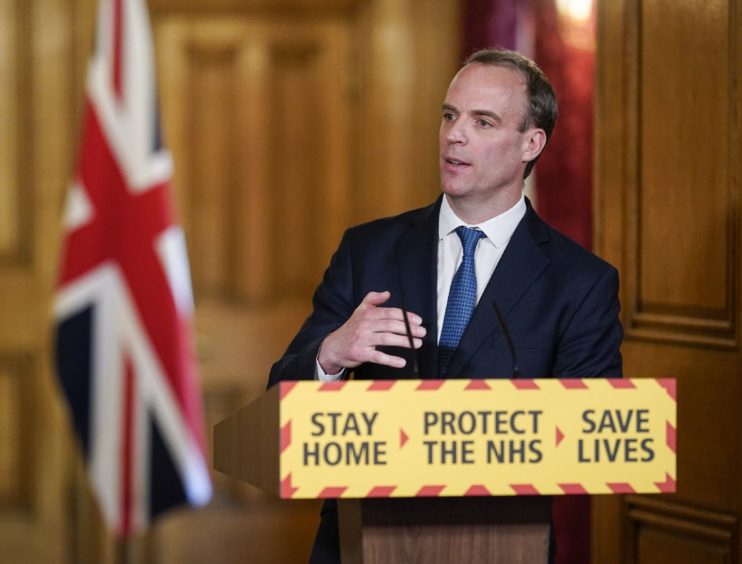Millions of furloughed workers will be asked to work the fields this summer as part of a government plan to help the harvest.
Environment Secretary George Eustice said the move was necessary as the usual team of largely migrant workers that pick the UK’s fruit and vegetables were not in the country due to the pandemic.
The Courier reported last month on fears that crops could be “left to rot” in fields as coronavirus travel restrictions slowed the supply of seasonal workers.
Mr Eustice, speaking at the daily Downing Street press briefing, said: “We’re acutely aware that we’re about to start the British season in fresh produce, in soft fruits and salads.
“We estimate that probably only about a third of the migrant labour that would normally come to the UK is here, and was probably here before lockdown.
“We are working with industry to identify an approach that will encourage those millions of furloughed workers in some cases to consider taking a second job, helping get the harvest in in June.”
He added: “It’s not an issue at the moment since the harvest has barely begun, but we do anticipate that there will be a need to recruit staff for those sectors in the month of June.”
National Farmers’ Union vice president Tom Bradshaw welcomed the move, he said: “A dedicated website has been created by the government, and farm businesses and recruiters looking for staff are currently posting these vacancies on the site.
“There will be thousands of vacancies opening up on farms across the country in the coming weeks and we have already seen a fantastic response from the public wanting to pick for Britain this summer.
“Farmers are incredibly proud to be producing food for the nation at this crucial time but there are challenges and the support of the British public is incredibly valued.”
The announcement came as the coronavirus death toll in UK hospitals hit 20,732.
The UK is now only the fifth country to pass 20,000 coronavirus deaths, behind the US, Italy, Spain and France.
That figure does not include deaths in the wider community, such as in care homes, which means the true toll will be higher by several thousand at least.
Foreign Secretary Dominic Raab, speaking after the latest round of figures were released, said that social distancing measures would have to remain in place for “some time” to come.
Mr Raab, who has been standing in for Boris Johnson while he recovered from coronavirus, said people will have to get used to a “new normal”.
“We won’t just have this binary easing up of measures. We will end up moving to a new normal,” he told BBC One’s Andrew Marr show.
“We need to take a sure-footed step forward which protects life but also preserves our way of life. So we are very focused on doing the homework that can allow us to do that.”
He said it was “inconceivable” schools could re-open without measures in place to stop the spread of the disease, but said ministers were looking to ease restrictions on outdoor activities.
“We do want to look – when it is safe, when it is responsible – at ways to allow more outdoor activities to take place, but again we have got to have the evidence that that is a sure-footed step – doesn’t allow coronavirus to get a grip back on the country.”
Mr Raab did suggest however that social distancing measures already being seen in food shops and other businesses that have remained operating could be expanded to non-essential businesses if they were to reopen.
Asked whether there was any chance of people being able to play sport outside this summer, Mr Raab said this would be “very difficult because of the level and scale of interaction”.
But he added: “I think the professional sport may be different because of the scale of testing that they would be able to introduce.”
On the possibility of testing people arriving at UK airports, Mr Raab said this measure might be introduced but he “can’t say it with any certainty yet”.
“The advice that we got – and I checked it with the scientists, with the chief medical officer – at the outset when we took up our social distancing measures, is that it wouldn’t make any difference from a public health point of view,” he said.
The comments came as it was announced that Boris Johnson would be returning to work at Downing Street this morning.
The prime minister returns after a week in hospital, including three nights in intensive care, after being admitted with Covid-19 on April 5.
During his hospitalisation, he received regular oxygen treatment to help his breathing.
Mr Raab said the prime minister’s return would be a “boost for the government and a boost for the country”.





